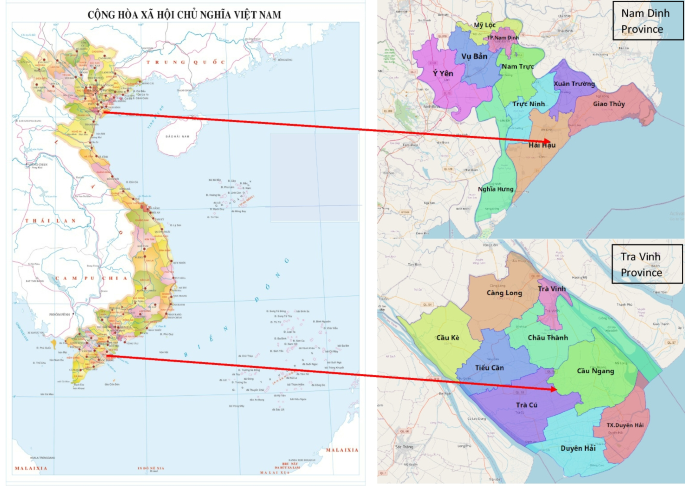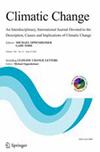主观性和主题制定如何影响社区参与气候变化适应:越南的案例
IF 4.8
2区 环境科学与生态学
Q1 ENVIRONMENTAL SCIENCES
引用次数: 0
摘要
对权力关系和气候变化适应持批判态度的学者强调,由于权力运行不平衡,社区参与的缺失。然而,关于不平等的权力关系和主体形成如何制约公众参与的证据还没有得到充分的研究。在本文中,我们利用社区参与和主体性镜头之间的交集来研究等级政治结构如何系统地运作以影响社区参与适应,以及当地社区如何以及为什么作为主题制定的结果被包括或排除在适应之外,并以越南为案例研究。通过66次半结构化访谈和10次涉及政策制定者、从业者、地方当局和社区的焦点小组讨论,我们研究了主要受访者如何对当地在农业适应活动中的角色和能力形成刻板印象。通过内容分析,我们发现越南的普通民众通常被认为缺乏应对气候影响的知识和能力。通过传统的政府主导模式在两个农业适应项目中的反映,该研究表明,微妙但普遍的主体性和主题制定过程通过影响关键利益相关者的认知和随后的行动来限制社区参与,从而削弱了地方在开展适应方面的作用和能力。这使地方社区和政府实体之间的权力不平衡永久化。这些发现为气候变化适应的主流学术研究提供了依据,即在威权政权下,地方能力不仅受到掌权者的破坏,也受到社区成员的破坏,因为他们同意政府的决定。本文章由计算机程序翻译,如有差异,请以英文原文为准。

How subjectivities and subject-making influence community participation in climate change adaptation: the case of Vietnam
Abstract Critical scholars on power relations and climate change adaptation have highlighted the lack of community participation as a consequence of unbalanced power operations. Evidence about how unequal power relations and subject formation constrain public participation, however, is under-studied. In this paper, we utilised the intersection between community participation and the subjectivities lens to examine how a hierarchical political structure systematically operates to influence community engagement in adaptation and how and why local communities are included or excluded from adaptation as a result of subject-making, using Vietnam as a case study. Using 66 semi-structured interviews and ten focus group discussions involving policymakers, practitioners, local authorities, and communities, we examined how the key respondents stereotyped local roles and capacity in agricultural adaptation activities. Applying content analysis, we found that the general population in Vietnam is often framed as lacking knowledge and capacity to respond to climate impacts. Reflected through a traditional government-led model in two agricultural adaptation projects, the study showed that subtle but pervasive subjectivities and subject-making processes constrain community participation by affecting perceptions and, subsequently, actions of key stakeholders, undermining local roles and capacity in undertaking adaptation. These perpetuate the power imbalance between local communities and government entities. The findings contribute to the prevailing scholarship of climate change adaptation that, under an authoritarian regime, local capacity is undermined not only by powerholders but also by community members as they consent to government decisions.
求助全文
通过发布文献求助,成功后即可免费获取论文全文。
去求助
来源期刊

Climatic Change
环境科学-环境科学
CiteScore
10.20
自引率
4.20%
发文量
180
审稿时长
7.5 months
期刊介绍:
Climatic Change is dedicated to the totality of the problem of climatic variability and change - its descriptions, causes, implications and interactions among these. The purpose of the journal is to provide a means of exchange among those working in different disciplines on problems related to climatic variations. This means that authors have an opportunity to communicate the essence of their studies to people in other climate-related disciplines and to interested non-disciplinarians, as well as to report on research in which the originality is in the combinations of (not necessarily original) work from several disciplines. The journal also includes vigorous editorial and book review sections.
 求助内容:
求助内容: 应助结果提醒方式:
应助结果提醒方式:


